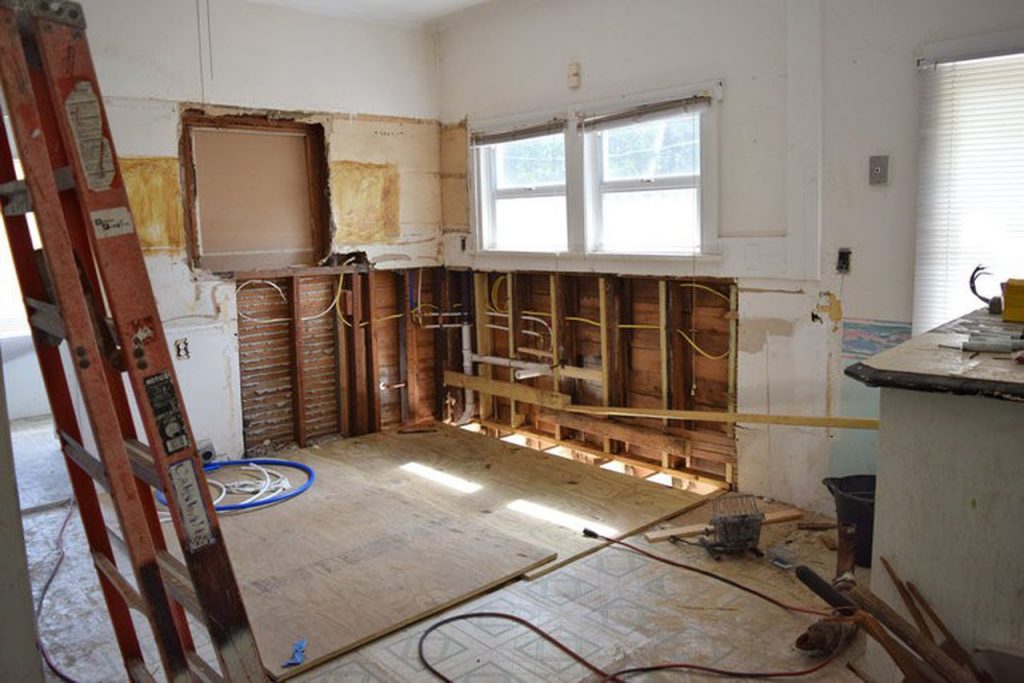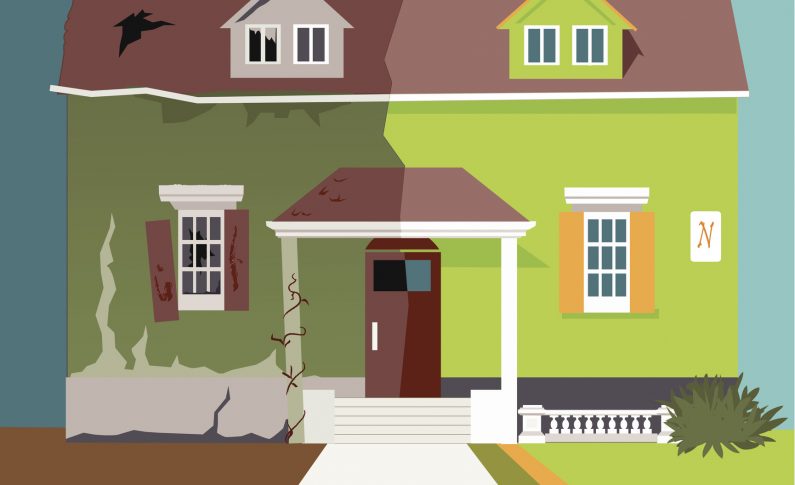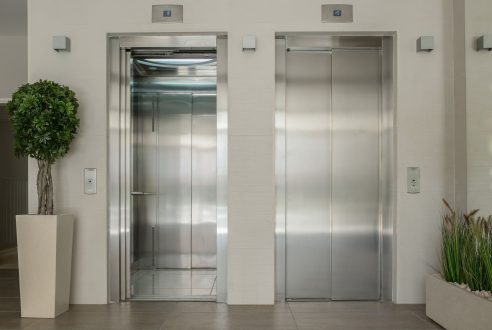We’ve all seen the home improvement shows on TV. A personable couple buys a forlorn house, turns it into something beautiful and sells it for a profit, all within a few months.
Sorry to burst your bubble, but it’s not as easy as it looks. People make money flipping houses every day, but the secrets to success start with really knowing what you’re doing. And finding a good house to flip is much harder now because the market is so strong for bargain-priced homes.
Also, don’t believe those late-night infomercials that say you can get into house flipping with no money. Nobody is going to hand you a house for free, and you can’t go to Home Depot and have them give you your supplies for free. If you are using credit cards and have no money, you can get into trouble quickly.
If you’re determined to make a go at house flipping, have a look at the 9 secrets of every successful house-flipper and make them your own.

They buy at the right price.
If you buy a house at full retail price then spend $25,000 on improvements, clearly, you won’t make a profit. You want a house to which you can add value and sell for more than you spend. Especially in today’s market, you may need to search hard for a house that will make a profitable flip.
They have access to cash.
A traditional lender will want at least 25 percent down and also have the best rate. A hard-money lender, who gives a short-term mortgage based upon the value of the asset, may not care about your credit and will lend enough to buy and rehab, but he or she will charge 10 to 15 percent interest or more. You may get lucky and find a private lender who trusts you enough to give you a loan for acquisition and repair costs at a reasonable rate, but that often takes a track record unless you have relatives with money.
They make accurate cost estimates.
Before you decide whether a house will make a good flip, you need to know how much it will cost to repair it, market it and hold onto it during the process, which means you also need an accurate timetable. When you estimate tile costs, don’t just look at the $2-per-square-foot price tag on the tile, but also include the cost of labor, mortar, grout and tools. Don’t forget taxes, insurance, mortgage payments, real estate commissions and marketing costs.
They hire good contractors.
Finding a good, reliable contractor to work with you on flipping a house isn’t any easier than finding a contractor to renovate your kitchen. Start looking before you find the house. Ask for references, call those references and look at completed projects.
They buy in the right neighborhoods.
When you don’t have a lot of money, the tendency is to assume that an inexpensive house anywhere is a good option. It isn’t. You want a neighborhood that is safe, where values are rising and where people want to live.

They do work themselves – when they can do it well.
One way to avoid dealing with contractors is to do the repair work yourself. That can be a decent option if you’re good at home repairs. Calculate how quickly you can do the work yourself vs. how much you would have to pay someone else. Your time has value, too. But bad renovations turn off prospective buyers.
They don’t over-improve.
If you buy a house in a neighborhood where all the other homes have laminate countertops and linoleum floors, you may not get your money back if you add custom wood cabinets, expensive wood floors and marble countertops. You don’t want to be the nicest house in the neighborhood, after all, since you’re never going to sell a $300,000 house in a $175,000 neighborhood.
They add special touches that don’t cost much.
Spend a little more on kitchen faucets, a new doorbell, lighting or plumbing fixtures. Wainscoting, chair rail and crown molding all look nice but don’t cost much.
They sell their homes quickly.
Every day the house sits unsold, you lose money. You need a strong marketing plan, whether you use a real estate agent or list it yourself. And you’ve got to price the property to sell based on market values, not what you’ve invested in it for improvements. If you list too high, the house won’t sell. If you list too low, you leave money on the table. The key is to always find the right balance.
House flipping has the potential to earn you quite a lot of money, just as the potential for you to lose everything. Hopefully, the tips listed here will help you stay in the black and slowly build a successful career. Be sure to share your views and experiences in the comments below.




Pingback: Mistakes To Avoid While House Flipping - Top Real Estate
Pingback: How to Maximize ROI on a Fixer-Upper as a Successful Senior - Real Estate Musings from Arlington, VA